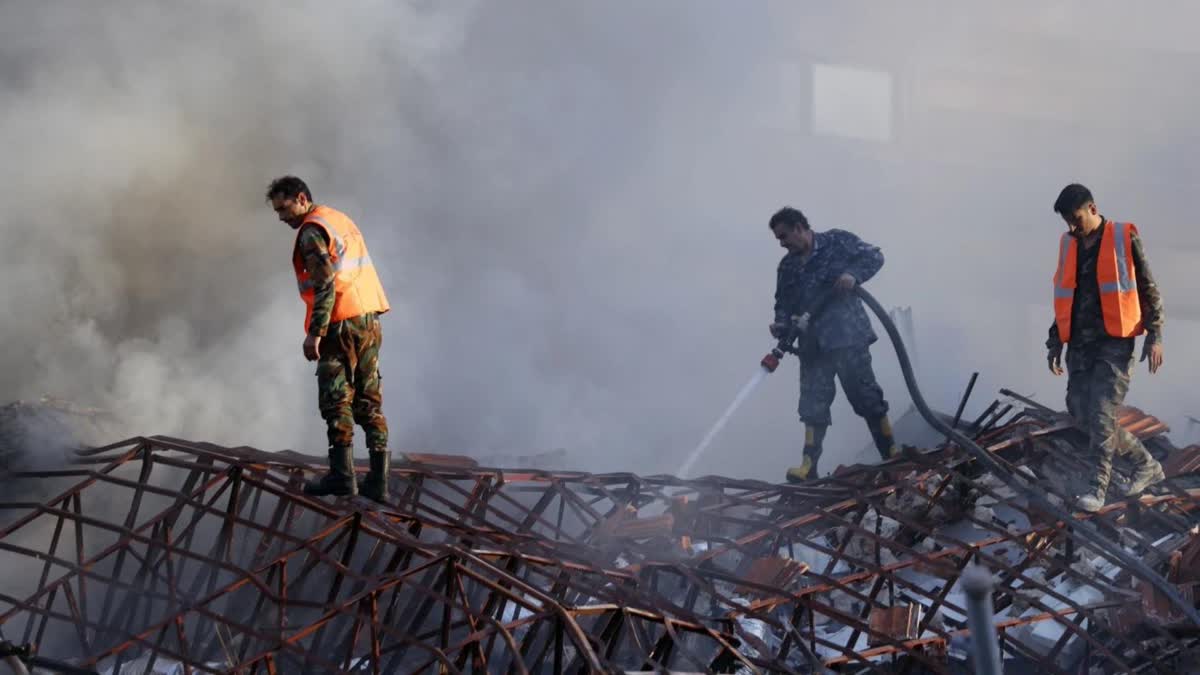New Delhi: Amid reports that Iran is likely to mount retaliatory attacks on Israel in the ongoing Gaza war, the Indian embassy in Israel on Friday issued an advisory for its nationals to avoid unnecessary travel to those countries. The advisory came soon after the Ministry of External Affairs on Friday asked its citizens not to travel to Iran or Israel amid escalating tensions between the two countries following a strike on the Iranian consulate in Syria days ago.
"In view of the prevailing security situation in the region, all Indian nationals in Israel are advised to avoid unnecessary travel, remain calm and follow safety guidelines issued by the local authorities," an 'important advisory' released by the embassy on its social media handles said.
"The embassy remains in touch with the Israeli authorities to ensure the safety of all our nationals," it said. The mission has also asked all its nationals who are not yet registered with it to do so at a given link.
The United States has also issued similar advisory to its nationals telling them to restrict their movement and follow guidelines. Iran has blamed Israel for an attack on its diplomatic building in Damascus on April 1 in which two of its prominent commanders were killed among others.
Iran has vowed revenge to avenge the attack. The threat has led to worldwide diplomatic initiatives to thwart a possible further conflagration in the region already struggling with Israel's offensive in Gaza following a terror attack carried out by Hamas in its territory on October 7, and also regular exchange of fire between the Jewish state and Lebanese Shi'ite faction Hezbollah, which joined the war in solidarity with Hamas.
Houthis, considered Iran's proxy in Yemen, and other factions seen as close to Tehran have also from time to time carried out attacks against Israel and at assets of countries that seem to be supportive of the Jewish state, disrupting international waters and global trade routes.
According to a story in The Conversation, reports that Iran is preparing reprisal attacks following the deadly bombing of a facility that Israel claims is linked to threats against its interests have provoked fears of conflict widening in the Middle East. US President Joe Biden has vowed ironclad support for Israel, which is widely considered to be responsible for the April 1, 2024, attack, amid fiery rhetoric from Tehran warning of revenge.
But what could an Iranian response look like? And how is Tehran thinking about the associated pros and cons of any such activity? The Conversation US turned to Javed Ali, a national security expert at the University of Michigan and former senior US counterterrorism official, for answers.
The report of The Conversation said that the attack in Damascus which the Israeli government has yet to acknowledge publicly was a dramatic turn in the long-running shadow war between Israel and Iran. For decades now, both Iran and Israel have engaged in operations against each other in both the physical and virtual worlds. These attacks have involved cyberoperations, support to proxy forces, airstrikes and targeted killings that have taken a toll on both sides.
The Damascus attack was particularly dramatic, however, because it killed two generals and five other officers in the Islamic Revolutionary Guards Corps' Quds Force. The Quds Force is Iran's unconventional warfare wing that has supported Tehran's proxies and regional partners with money, weapons and equipment for decades. Moreover, it took place on a diplomatic enclave, which Israel had not previously conducted operations against, even in Damascus.
In the history of the Quds Force, it had never lost that many officers in one operation by its adversaries. Even the significant US attack against former Quds Force chief Qassem Soleimani in January 2020 did not kill other senior members of the organisation. In addition, Mohammad Zahedi, one of the generals killed in the April 1 attack, was directly responsible for managing relationships with Hezbollah in Lebanon, the Syrian government and Shia militias in that country, and Hamas and Palestinian Islamic Jihad in Gaza and the West Bank.
Read More



